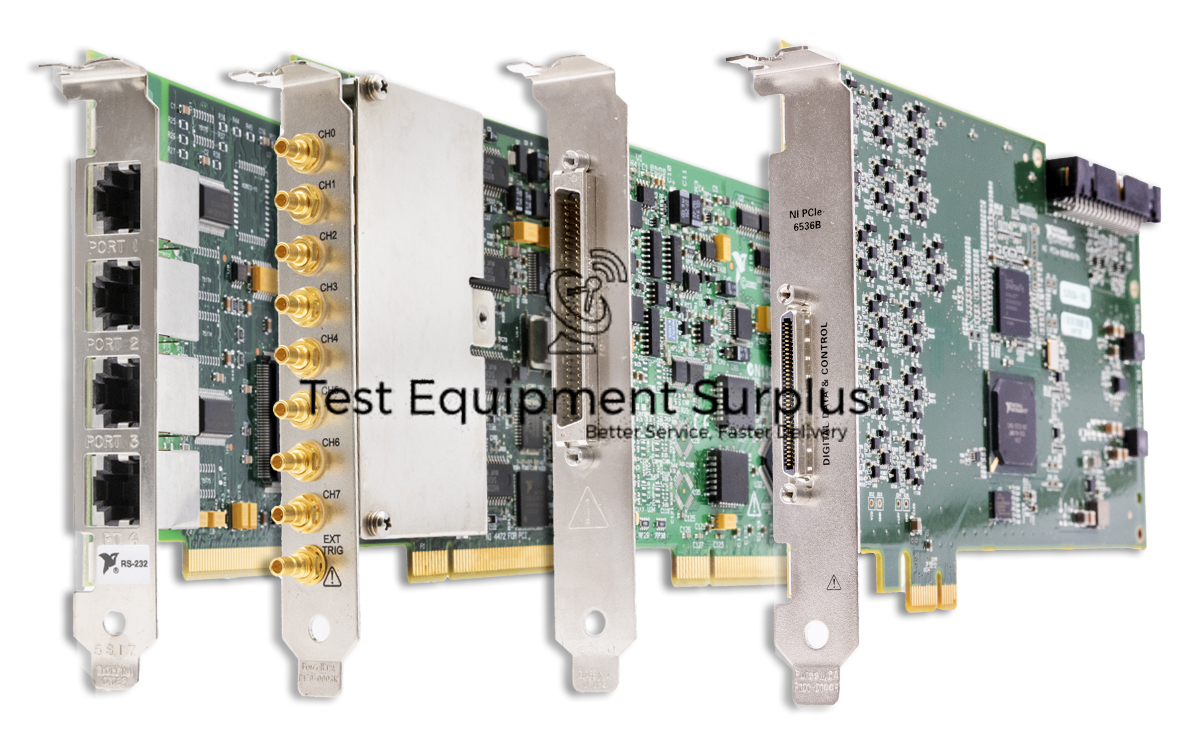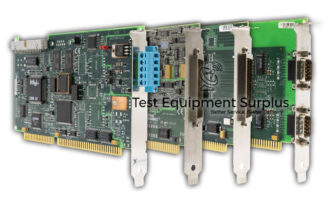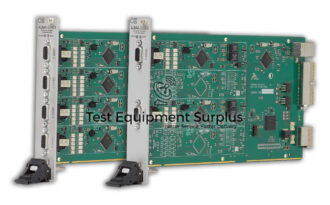Description
The National Instruments PCI-6722 Analog Output Device, with part number 778705-01, is a versatile component boasting a 13-bit resolution and an impressive update rate of up to 800 kS/s per channel. It is equipped with 8 analog output channels and can handle an output range of ±10 V, providing adequate flexibility for various applications. Additionally, this device features 8 TTL/CMOS compatible digital I/O lines, enhancing its integration capabilities with other digital systems.
When it comes to waveform generation, the device can achieve frequencies of up to 500 kHz, making it ideal for creating a wide array of waveform types. Synchronization is also streamlined thanks to the inclusion of an RTSI bus and PFI pins, which facilitate the coordination of multiple devices within a system. The device’s compatibility with the LabVIEW Real-Time Module also means that it can be effectively used for real-time control applications, supporting sophisticated control algorithms including PID and customized algorithms to meet the specific needs of advanced projects.
| Feature | Specification |
|---|---|
| Part Number | 778705-01 |
| Resolution | 13-bit |
| Update Rate | Up to 800 kS/s per channel |
| Number of Analog Output Channels | 8 |
| Output Range | ±10 V |
| Number of Digital I/O Lines | 8 TTL/CMOS compatible |
| Max Waveform Generation Frequency | Up to 500 kHz |
| Synchronization Bus | RTSI bus, PFI pins |
| Real-Time Control | Compatible with LabVIEW Real-Time Module |
| Algorithms Supported | PID, custom algorithms |
Question 1: What are the capabilities and synchronization features of the National Instruments PCI-6722 Analog Output Device, and how do they support its use in real-time control applications?
Answer 1: The inclusion of an RTSI bus and PFI pins on the National Instruments PCI-6722 Analog Output Device enhances synchronization capabilities by providing a means for direct timing and triggering communication between multiple devices, allowing for precise coordination and simultaneous operation within a system.
Question 2: What are the capabilities and features of the National Instruments PCI-6722 Analog Output Device that make it suitable for various applications, including real-time control?
Answer 2: The National Instruments PCI-6722 Analog Output Device with part number 778705-01 can generate waveforms at a maximum frequency of up to 500 kHz.
Question 3: How does the National Instruments PCI-6722 Analog Output Device’s inclusion of an RTSI bus and PFI pins enhance its synchronization capabilities when coordinating multiple devices within a system?
Answer 3: The National Instruments PCI-6722 Analog Output Device is equipped with a 13-bit resolution, update rates up to 800 kS/s per channel, 8 analog output channels with an output range of ±10 V, and 8 TTL/CMOS compatible digital I/O lines, making it highly versatile for a range of applications; additionally, its ability to generate waveforms at frequencies up to 500 kHz, synchronization features via an RTSI bus and PFI pins, and compatibility with the
Question 4: What is the maximum frequency at which the National Instruments PCI-6722 Analog Output Device with part number 778705-01 can generate waveforms?
Answer 4: The National Instruments PCI-6722 Analog Output Device is capable of delivering a 13-bit resolution with an update rate of up to 800 kS/s per channel across 8 analog output channels, handling an output range of ±10 V, and includes 8 TTL/CMOS compatible digital I/O lines; its synchronization features like the RTSI bus and PFI pins enable the coordination of multiple devices, and compatibility with the LabVIEW Real-Time Module allows it to support real-time control applications using
Question 5: What is the maximum waveform generation frequency of the National Instruments PCI-6722 Analog Output Device, and how does its compatibility with the LabVIEW Real-Time Module benefit real-time control applications?
Answer 5: The maximum waveform generation frequency of the National Instruments PCI-6722 Analog Output Device is up to 500 kHz, and its compatibility with the LabVIEW Real-Time Module benefits real-time control applications by allowing for the implementation of sophisticated control algorithms, such as PID and customized algorithms, thereby ensuring precise and timely execution of tasks within those applications.



